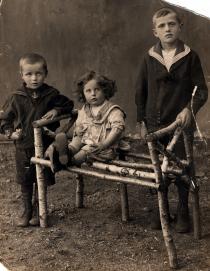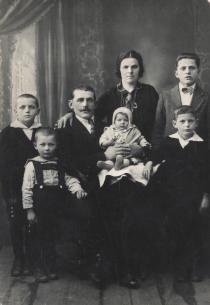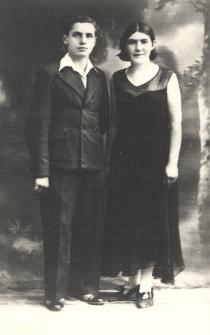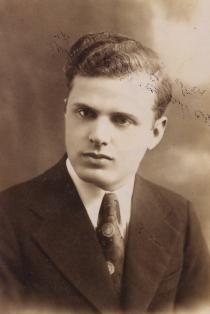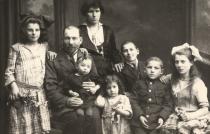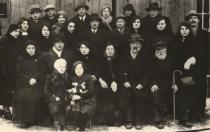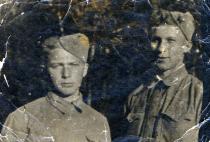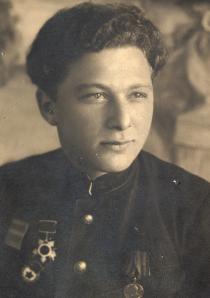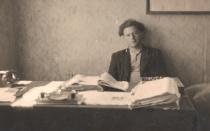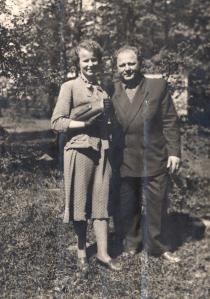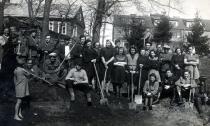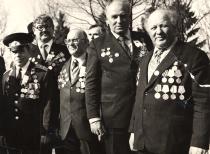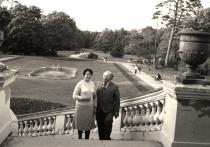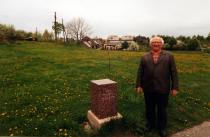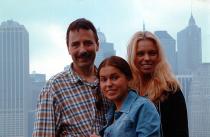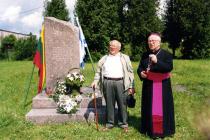This is me, Rafael Genis, during my service in the Soviet army. I am on the left with my army friend Vladislav Polushkin. He was a Russian guy. He was like a brother to me at the front, we shared all things, and covered ourselves with one military jacket. Vladislav reached Berlin and after the war lived in Simferopol. We visited each other. We were very amicable. He died in 2005. The photo was taken in Orel, after the liberation of the city during a respite between battles in 1943.
When I finished the sergeant school I went in the reserve regiment of the tank army of the First Ukrainian Front. We covered almost all of Ukraine, having liberated Sumy, Poltava and the Chernigov oblast. Once in Poltava I was in a dugout, and it was hit by a bomb. I was covered with earth. Fortunately, they found me and sent me to hospital. I had a bad concussion. After the hospital I happened to be in the 9th Tank-Destroyer division, which reached Kiev.
There were all kinds of things at war: both tragic and usual. There were even anecdotes. Once in Ukraine, where the occupiers were Italians, we found a deserted truck with cans. We loaded ourselves with those cans, putting them in our pockets. I even put some of them in my pants and tied them up at the bottom. We could hardly reach our unit. When we opened them, there were tiny paws. It turned out that those were frogs. We could not eat them.
There were a lot of tragic and sad things of course. Every day some of our pals didn't come back from the battle. So many of them were lost! We couldn't even bury them, just leave the cadavers on the battle field and move on. We saw boys dying. Even now I can?t get how we we were able to survive. We hadn't washed ourselves for months, didn't change our clothes, slept in wet dirty clothes, were frozen to death, but still we fought. Though, I should say that we were fed quite well at the time when there were problems with nutrition.
Knowing the Fascists? attitude towards the Jews, and reading the military press, I understood that Lithuanian Jews, including my relatives, were exterminated. When we were liberating towns and villages in Ukraine, the local people told us about executions of Jews in ghettos and camps, about the atrocity of the Fascists. I saw horrible pits, the places where Jews perished and understood even more that I remained alone. My task was revenge. I went in every battle to take revenge and exterminate as many Fascists as possible. In summer 1943 I undermined four enemy tanks and every burning tank was a monument for my kin.

